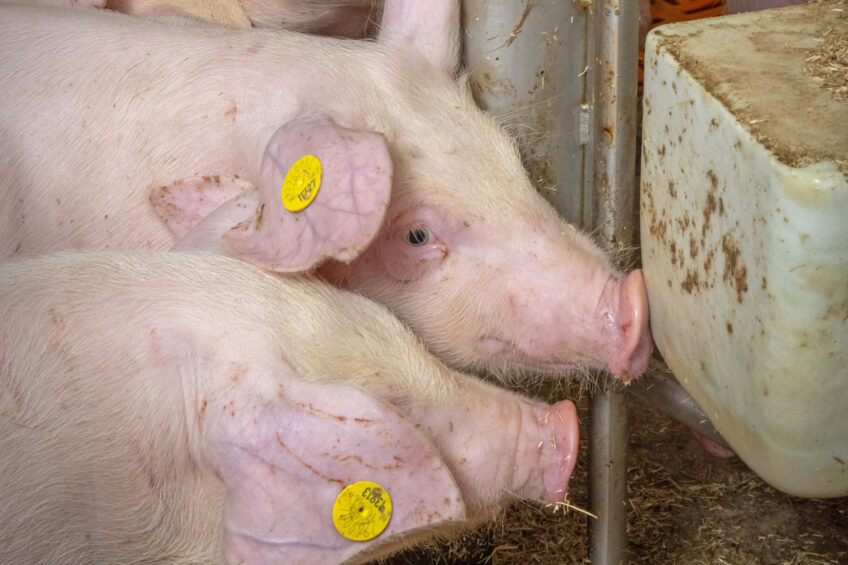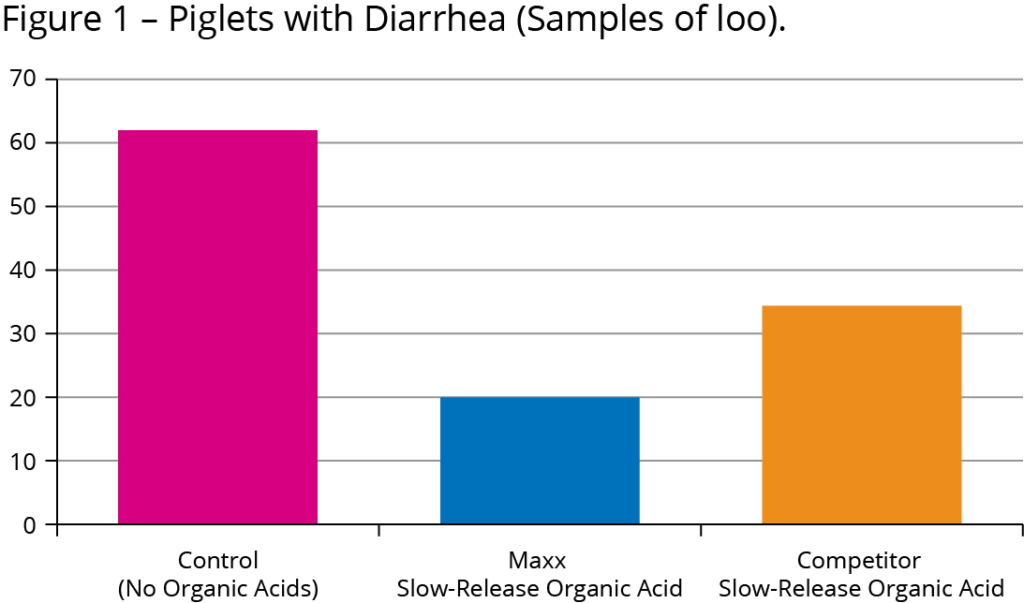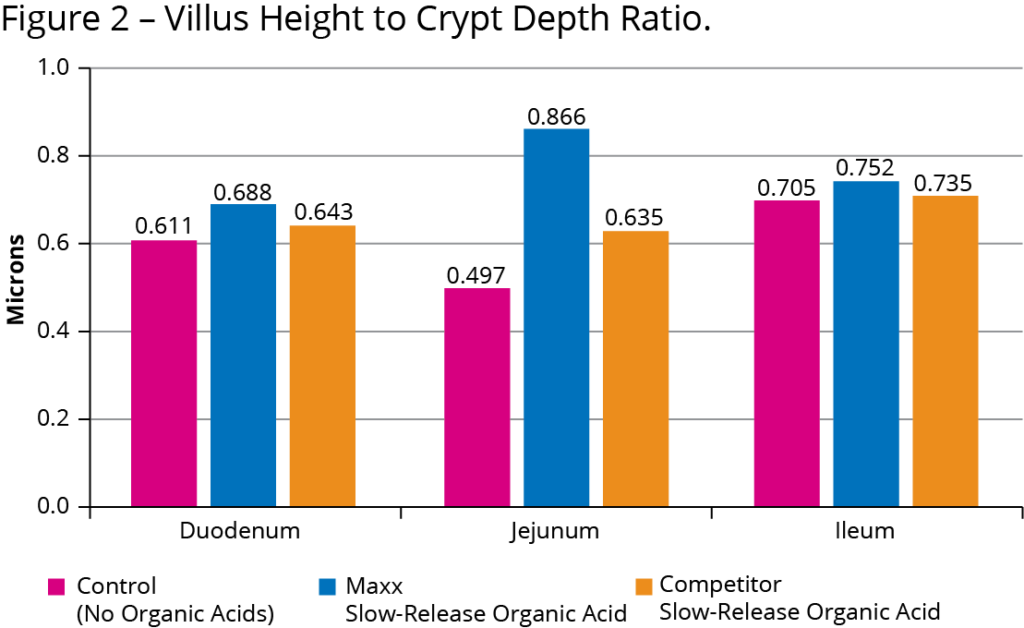Maximising every pig’s health and performance potential

The global demand for pork continues to rise, challenging producers to enhance product quality and efficiency while upholding animal welfare and minimising environmental impact. Advanced microencapsulation technology can help to develop solutions for swine nutrition.
Microencapsulation ensures that essential nutrients are delivered precisely where needed in the digestive system. By bypassing the gastric environment and delivering active ingredients directly to the intestine, our controlled release technology optimises nutrient absorption, lowers the required concentration of active compounds, releases bacteriostatic compounds where they have the greatest impact, and reduces reliance on conventional feed additives. This leads to more efficient production, healthier pigs, and a more sustainable industry.
Lower antibiotic use through nutrition
As the industry moves toward antibiotic-free production, producers need effective alternatives to maintain swine health. Encapsulation technologies protect beneficial additives and ensure precise delivery to the gut. This approach enhances digestive health, improves nutrient absorption, and controls harmful bacteria, significantly reducing the need for antibiotics.
Microencapsulated probiotics help establish a balanced microbial environment, strengthening immunity and improving digestion in weaned pigs. Encapsulated essential oils provide sustained antimicrobial and anti-inflammatory benefits, reducing oxidative stress and supporting gut health.
Zinc oxide, widely used for its antimicrobial properties, disrupts bacterial cell membranes and inhibits major food-borne pathogens, such as Escherichia coli (E.coli), Salmonella, Listeria monocytogenes, and Staphylococcus aureus. However, dietary zinc oxide is largely unabsorbed and excreted, leading to environmental concerns and regulatory restrictions.
Microencapsulation enhances bio-availability of zinc oxide allowing targeted delivery to the large intestine, where it acts as a powerful bacteriostat against E. coli. This reduces dietary inclusion levels while maintaining effectiveness and minimising environmental accumulation. In weaned pigs, slow-release zinc oxide reduces diarrhea and mortality while accelerating growth and gut development.
Similarly, copper, another essential antimicrobial, often loses efficacy when it binds to other dietary compounds. Microencapsulation ensures its release in the lower intestine, maximising its benefits. Microencapsulated medium-chain fatty acids further enhance nutrient digestibility and feed efficiency, improving swine health and performance.
Enhancing gut health for stronger pigs
Beyond antibiotic reduction, overall gut health is fundamental to swine performance. A well-balanced gut microbiome reduces enteric disease, strengthens the intestinal barrier, and improves resilience against environmental stressors. Microencapsulation ensures beneficial nutrients, probiotics, and functional compounds reach their target for maximum impact.
Microencapsulated feed additives strengthen natural defenses, improving digestion, nutrient absorption, and feed conversion. By optimising gut health, targeted release of microencapsulated feed additives reduces digestive disorders, promotes better feed efficiency, and accelerates weaned pig growth rates.

Greater efficiency, improved health
Scientific research reinforces the effectiveness of microencapsulation as a delivery system. A university study demonstrated the efficiency of Maxx Performance’s slow-release organic acid and essential oils in promoting piglet health. Administered at 700g/MT, the product Maxx Performance delivered more powerful health benefits than another product given at 2kg/MT.
The study found a significant reduction in piglet diarrhoea (see Figure 1), leading to faster growth rates and less reliance on antibiotics. Additionally, improved villi height in the small intestine and increased volatile fatty acids (VFA) resulted in better nutrient absorption and fewer pathogenic bacteria (see Figure 2).
The microencapsulated solution required only 700g/MT compared to other products that require 2kg/MT, demonstrating 65% greater efficiency while reducing piglet diarrhoea. These findings underscore the critical role of using microencapsulated feed additives in enhancing gut health and swine performance.

Improving feed efficiency and growth
Maximising growth and feed efficiency is crucial for profitability. Microencapsulated feed additives enhance these factors by protecting bioactive compounds and ensuring controlled release in the gut. This improves nutrient utilisation, supports lean muscle growth, and reduces feed waste. Some tailored slow-release feed additives also lower faecal E. coli counts and reduce piglet diarrhoea, leading to improved overall health.
Enhanced bio-availability of key ingredients results in better digestion and nutrient absorption, promoting weight gain and more consistent growth across the herd. By improving feed conversion efficiency, pig farmers achieve larger returns while maintaining high animal welfare and environmental sustainability.
Microencapsulation optimises nutrient delivery without requiring excessive concentrations of active compounds, reinforcing its value in modern swine nutrition.
Reducing piglet mortality
Early-life nutrition directly impacts piglet survival and long-term performance. Newborn piglets are highly susceptible to digestive issues, infections, and environmental stressors, leading to high mortality rates. Maxx Performance’s microencapsulation solutions strengthen gut function and resilience, improving piglet survival.
By delivering targeted nutrients that enhance gut development and immunity, slow-release microencapsulation feed additives, such as zinc oxide, essential oils, and organic acids, help piglets establish a stronger microbiome, develop better nutrient absorption, and experience fewer digestive disturbances. A healthier start means higher survival rates, faster growth, and fewer setbacks in early production.


